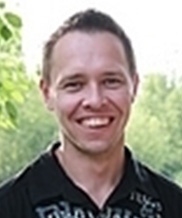Mapping Learning to Game Mechanics and Beyond
Interactive media and games increasingly pervade and shape our society. In addition to their dominant roles in entertainment, video games play growing roles in education, arts, science and health. This seminar series brings together a diverse set of experts to provide interdisciplinary perspectives on these media regarding their history, technologies, scholarly research, industry, artistic value and potential future.
Join us every Friday From April 3rd until June 5th from 12pm-1pm in Shriram 104.
Also listed as one-unit course BIOE196. For more information contact Ingmar@stanford.edu
Never Miss An Event; Join Our Email Community
Presenter

Kristian Kiili, Mapping Learning to Game Mechanics and Beyond. One problem with our education system is that learning and assessment are generally treated as quite separate things in schools. However, games provide opportunities to combine these processes in an engaging and effective way. In this talk I will present the Semideus rational number game that we are currently developing. The gameplay of Semideus is founded on challenges that require working with number lines implemented as walkable platforms of a mountain. The talk will reveal our approach to map research findings to game mechanics and user interface solutions. In particular, I will discuss the challenges that we have faced in balancing fun, assessment and cognitive aids. The talk will also highlight some design insights that we have discovered trough play testing.
Kristian Kiili, Ph.D., is a Senior Research Fellow at Tampere University of Technology (TUT). He is a head of TUT Game Lab focusing on game based learning, human-computer interaction and user experience research. Currently, Kiili is a visiting scholar in Stanford University (H-STAR). His visit to Stanford relates to Games to Schools project that is part of Academy of Finland’s The Future of Learning, Knowledge and Skills (TULOS) research programme.